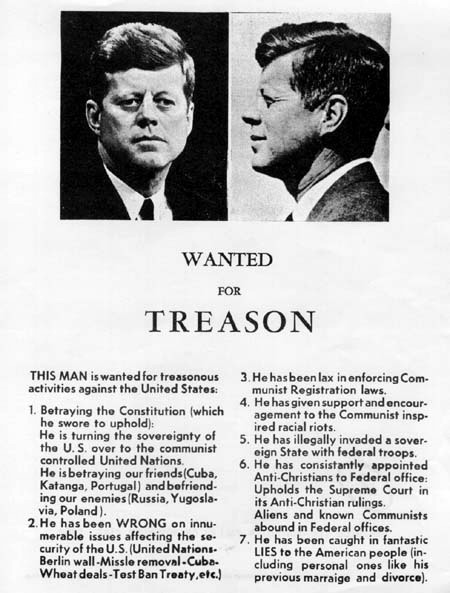
Beware: conspiracy theories may be just around the corner!
What comes to your mind when you hear the term “conspiracy theory”? I bet that in many, probably most of you, when running into the term a feeling of contempt for such theories and their supporters is generated, and the firm assertion that you don’t believe “in these things”. At least I suppose so, judging from my every-day exchanges with friends and acquaintances.
The aversion towards conspiracy theories is reflected more systematically in most of the articles of the daily press approaching the issue –except of course for articles written by conspiracists themselves. Lately, the popularity of conspiracy theories has increased. Along with this, the daily-press articles that confront them become more and more frequent. Such articles reflect the general skepticism and criticism that characterizes the attitude of the public towards conspiracy theories. Belief in them is considered to be a naive attitude of individuals with a characteristic over-suspiciousness, in any case individuals that in some respects differ from “us”.
It often happens that the observer of a phenomenon starts to see elements relevant to this phenomenon everywhere; so since I started working on conspiracy theories I frequently bump into daily-press, non-scholarly articles that approach the issue. And I must say that I am quite struck by the high accuracy of the views about conspiracy theories and the psychology of conspiracists that one can find in these articles: Many of the characteristics that journalists and social analysts attribute to the phenomenon have actually been backed up by studies in social psychology.
For example, conspiracy theories are largely viewed as irrational. In support of this view, a study by Wood, Douglas & Sutton (2011) has demonstrated that people who believe in conspiracy theories tend to believe in them “wholesale”. More precisely, the fact that an individual believes in one conspiracy theory predicts that he/she will also believe in other conspiracy theories. More worryingly, conspiracists can simultaneously believe in conspiracy theories that contradict each other. For example the more someone believes that the death of Princess Diana was set up by the British government, the more he/she believes that Princess Diana faked her own death in order to peacefully spend the rest of her life with her partner, Dodi Al-Fayed. This finding indicates that conspiracists lack a consistency in their beliefs, and that they are, thus, to a large extent irrational.
Another characteristic of conspiracy theories that is often highlighted is that people believe in them because they feel weak and they lack control over political and historical events. Indeed another interesting study (Van Prooijen & Joostman, 2013) showed that people believe more in conspiracy theories supporting that the war in Iraq was set up by oil companies, in case these companies are presented to the respondents as immoral and the later are in a state of uncertainty.
Now you may say, that these results suggest that conspiracy theories concern specific groups of individuals, sharing specific characteristics such as the ones highlighted above, namely individuals that are inconsistent in their beliefs, irrational, and quite uncertain. However, another line of research indicates that we shouldn’t draw such conclusions so easily. In a study conducted by Douglas and Sutton (2008) people read some arguments in favor of several conspiracy theories concerning the death of Princess Diana. For example, they read an ostensible witness to the fact that right before the car crash resulting to Diana’s death an explosion or bang was heard. After reading arguments like these they were asked to say to what extent they believed in a series of conspiracy theories concerning the death of Diana. You may be surprised to know that mere reading of the pro-conspiracy-theories arguments increased people’s beliefs in the theories: the subjects that read the arguments believed significantly more in the theories relative to people who merely stated their belief in the theories, without previously reading the supporting arguments. But even more interestingly, when the same people who were proven to be influenced by the arguments assessed to what extent they thought they were influenced by these arguments, they were proven wrong: they systematically were more influenced than they thought they were. On the contrary, they were accurate in estimating how much their peers were influenced: their assessment of their peers’ susceptibility was analogous to the actual susceptibility that the later displayed. These are very interesting results, as they suggest that, first of all, people are influenced by conspiracy theories –or more precisely by arguments supporting such theories; secondly they are not aware of their susceptibility to this kind of information. On the other hand, people accurately judge that others are influenced by arguments supporting conspiracy theories, a phenomenon not specific to conspiracy theories but to persuasive media in general. According to this “third person effect” people believe that others are more influenced than themselves by persuasive media (Davison, 1983). Note that for reasons of experimental design, the researchers did not inform the participants that they were reading arguments in favor of and rating conspiracy theories. So these results represent people’s attitude change when they are not aware that they are confronted with conspiracy theories. But the important thing to keep in mind is our susceptibility to such theories –and think that we are hereby talking about college students, that is to say educated, smart, and supposedly critical and rational people. If this finding is generalized to other conspiracy theories and other populations, then, especially in view of the great impact of internet on our “information” and education, and the easiness with which such theories are disseminated through it, it is no wonder that their popularity increases more and more –given that conspiracy theories are not set out as such.
So next time you read some intriguing alternative explanation of events think twice! 😉
PS The aim of the present post was actually not to “normalize” the readers’ beliefs, but rather to inform about the characteristics and the impact that such kinds of information can have on us. In following posts the discussion about conspiracy theories will go on, as the issue is much more complex than suggested so far.
References
Davison, W. P. (1983). The third-person effect in communication. Public Opinion
Quarterly, 47, 1–15.
Douglas, K. M., & Sutton, R. M. (2008). The hidden impact of conspiracy theories:
perceived and actual influence of theories surrounding the death of Princess
Diana. The Journal of Social Psychology, 148(2), 210–221.
Van Prooijen. J-W., & Jostmann, N. B. (2013). Belief in conspiracy theories: the influence
of uncertainty and perceived morality. European Journal of Social Psychology, 43, 109–115.
Wood, M. J., Douglas, K. M., & Sutton, R. M. (2012). Dead and Alive: Beliefs in
Contradictory Conspiracy Theories. Social Psychological and Personality Science
published online 25 January 2012. DOI: 10.1177/1948550611434786.
